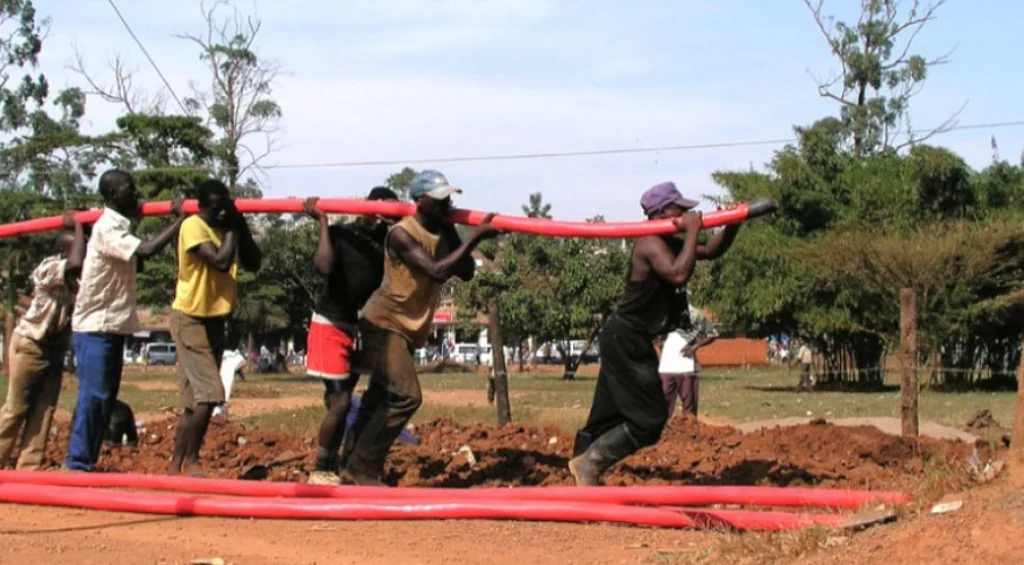Another election season in Africa is behind us. Last year about 19 countries headed to the polls in presidential and legislative elections. As it is with every election, political parties seemed to promise everything to win power. But across the region there appeared to be one common thing that African youth are clamoring for—Jobs!
The story of four Nigerian stowaways who set out to Europe in the rudder of a ship only to dock in Brazil is a grim reminder of the desperation of African youth. “In Nigeria there are no jobs, no money and no way for me to feed my younger brothers and my mother,” Roman Friday, one of the stowaways remarked. While the story of these four stowaways is harrowing, the factors that pushed them to undertake this perilous journey is not surprising. Consistently, Afrobarometer surveys have shown that (un)employment ranks among the top three priorities of African youth. In the most recent round of the Afrobarometer surveys [2021/23], one-third of Africans cite unemployment as the most important issue that their governments must prioritize.

So coming back to elections, political party manifestos are replete with big promises of job creation, but history shows that these promises are rarely fulfilled. Many of the jobs created are in already-struggling state-owned enterprises, often over-staffed with party loyalists, leaving the average citizen to their own fate. Fortunately, the era of promises without delivery appears to be over, as evidenced by last year’s youth led protest movements in Kenya and other African countries demanding government accountability.
As an African professional working in the field of development, the main question that keeps me awake at night is: What is the jobs agenda for Africa? Stories on the perilous journeys of young Africans to Europe, resurgence of military coups in West and Central Africa, the surge in protests, coupled with the region’s population dynamics, make this question even more imperative.
In a continent of 55 countries, a uniform jobs agenda will probably only exist in name and not in reality. But regardless of the differences, a few things will remain central to all— infrastructure. From energy, to transportation, digital, water, health, etc., our lives depend heavily on infrastructure systems. It is the bloodline of modern economies. However, Africa faces a huge infrastructure access gap. More than half a billion people lack access to electricity, only half of all roads in the continent are paved, and less than half of Africa’s rural communities can access an all-season road.
Africa has barely increased the length of the colonial era railroads since independence. Flying within Africa is not only daunting but expensive: a 1780km journey between Kinshasa (DRC) and Lagos (Nigeria), costs between $500 and $850, with at least one change, taking up to 20 hours, while flying Istanbul (Turkey) to Berlin (Germany), a similar distance, would cost about $150 on a 3 hour direct flight. Another worrying aspect of the infrastructure issue in Africa is that even when flights are available, they are often unreliable. Blackouts are rampant in many African cities, even South Africa has endured years of rolling blackouts.
Poor infrastructure access raises cost of doing business, leading to job cuts and low firm productivity; and discourages foreign direct investments, thereby limiting entry of productive firms. Access to quality infrastructure at affordable rates will set the stage for an efficient organization of production, centered on attracting large firms to enter and thrive.
Africa needs to prioritize infrastructure as an engine of structural transformation. Obviously, this will come at a huge cost, upwards of $130 billion per annum. To realize this goal, Africa needs to be strategic in leveraging private and public capital, prioritizing projects with potential for high rates of return. Development finance institutions including the World Bank, IFC, African Development Bank, and bilateral agencies certainly also have a role to play in supporting these countries to bridge the finance gap. Given the debt burden facing many African economies, concessional financing provided by the likes of the International Development Association (IDA) is needed more than ever by these countries to support development.
The region can face its infrastructure gap head-on by bolstering infrastructure investments to support economic transformation, and jobs. Admittedly this won’t be easy. But, regardless of how daunting the financing challenge is, the thought of 1.4 billion people losing hope in their countries because there are no jobs is even scarier.
“All roads lead to Rome” is an idiom meaning there is more than one way to reach a goal. It originated in ancient Rome where the extensive network of roads connected the city to all parts of the empire. Be it roads, aqueducts, or bridges, the Romans knew a thing or two about infrastructure. And while our “Roman” from Nigeria ended up in Brazil, it hardly matters. Metaphorically speaking, “Rome” is wherever there are jobs. The urgent task for African leaders is to build the “roads” that lead there.
source : World Bank Blogs







































































